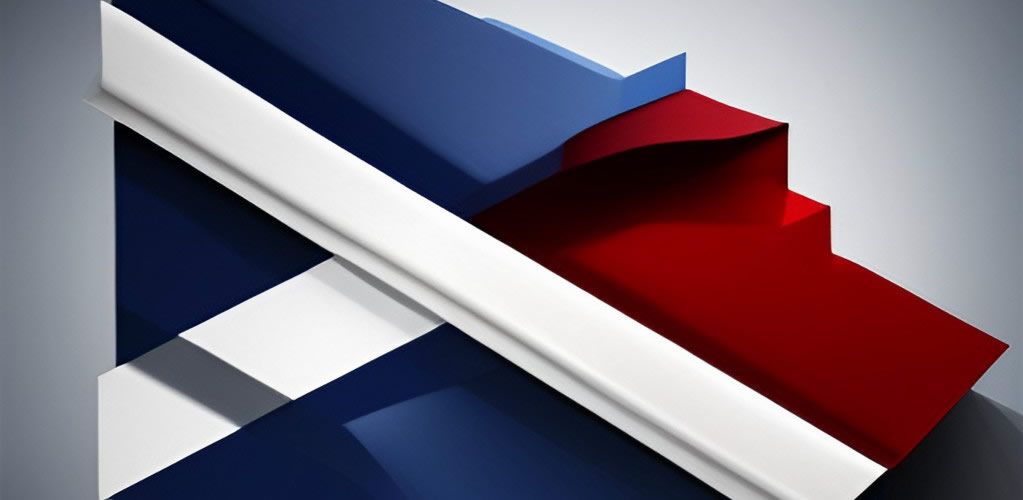A tale of two opinion polls
Two polls show conflicting results for SNP and the Scottish Independence, with one indicating significant losses for the party in the next UK General Election. The second poll, however, shows support for independence at 53%. Will the SNP have time to develop strategies to stem potential vote loss?

Two polls show conflicting results for SNP and the Scottish Independence, with one indicating significant losses for the party in the next UK General Election. The second poll, however, shows support for independence at 53%. Will the SNP have time to develop strategies to stem potential vote loss?
W ednesday was a day of two polls. One of them was loudly touted by the anti-independence Herald and Scotsman newspapers, which these days are becoming almost unreadable in their strident and ceaseless attacks on the SNP even as they ignore far worse stories about the Conservative party.
That poll was of course the YouGov poll which suggested that Labour could make very serious inroads into the SNP in the Central Belt at the next UK General Election. Both papers chose to make this poll headline news and retained the story as their lead throughout the day.

Scotland MRP: SNP could fall to just 27 seats if an election were held tomorrow.
CREDIT: YOUGOV
There’s no getting around the fact that the poll makes uncomfortable reading for the SNP leadership, it forecasts that the party would suffer losses even worse than those it endured during the 2017 General Election when the SNP lost 24 of its seats, many of which went to a resurgent Conservative party. During that election, some very senior SNP figures lost their Westminster seats, including former First Minister Alex Salmond and the party’s then-Westminster group leader Angus Robertson. The SNP remained the largest party in Scotland in terms of votes cast and seats won, but it was a hollow victory which was completely overshadowed by the losses which the party had incurred.
Several polls from a number of polling companies have recently shown that support for the SNP has declined. This is hardly surprising given the unceasing and furious wall-to-wall coverage that the Scottish media has given to the police investigation into SNP finances. Now, I am most certainly not saying that this is not a story which the Scottish media should cover, of course, it needs to tackle it, but there is a striking discrepancy between the relentless barrage of coverage given to the SNP finances story and the way in which the Scottish media has quickly glossed over the multiple scandals affecting the Conservative party even though, unlike the SNP story, these often involve taxpayers’ money in sums which are many multiples of the amount which is involved in the SNP finances story.
To date there have been no suggestions that the SNP money being investigated by the police has been diverted into personal pockets, this is not the case with some of the many scandals assailing the Conservatives, which often do include allegations that taxpayers’ money has been diverted into private accounts, in one case allegedly being used to purchase a luxury yacht.
It is very difficult to escape the conclusion that blatant double standards are at play. However, those who are determined to stop Scottish independence at all costs have managed to inflict some damage. If the SNP suffers significant losses at the next UK General Election the media narrative will be that Scotland does not want independence. That will be the established story even if the SNP remains the largest party in terms of votes cast and seats won and if the other pro-independence parties do manage to boost their vote share into double figures.
The fact that the second poll was completely ignored by the Herald and the Scotsman (at least I couldn’t find it anywhere on their websites) merely demonstrates that once respected publications are no longer serious newspapers, but have descended into being uncritical cheerleaders for British nationalism. This was of course the poll from Ipsos which was also published on Wednesday and which showed that support for independence is at 53%, and which although it has registered a drop in support for the SNP, still places the party well ahead of Labour in voting intention in Scotland. This poll was only given significant publicity by the pro-independence newspaper The National, which had also published news of the YouGov poll.
The Herald has joined the unreadable Scotsman in no longer seeming to care what sort of British state Scotland remains a part of, no matter how chaotic, corrupt or authoritarian the ruling party at Westminster may become, all that matters is that independence is staved off. This is what we are up against as independence supporters and campaigners, there is no level playing field in a Scottish media which will magnify anything which is damaging to the SNP and to support for independence and will ignore or trivialise anything which might boost support for independence.
However, there is more than a glimmer of hope. It is famously said that a week is a long time in politics and the next UK General Election is not expected to be held for around eighteen months. That gives the SNP time to develop effective lines which will stem the loss of votes to Labour in working-class and Yes-supporting areas of Central Scotland.
A clue to what that might be comes from that Ipsos poll that was effectively ignored by the anti-independence press. Just as a number of recent polls from different polling companies have agreed in showing a drop in support for the SNP recently, the polls have also concurred in showing that support for independence has not suffered in popularity along with the SNP. It’s almost as though voters in Scotland understand that a vote for independence is not the same as a vote for an SNP government in perpetuity, for all that the anti-independence media in Scotland is desperate for them to believe that it is.
Under Keir Starmer the Labour Party has moved quite far to the right, it is now a supporter of Brexit and of many of the authoritarian and anti-democratic policies of the Tories. Like the Tories Starmer’s Labour pays lip service to the notion of the United Kingdom as a voluntary union of nations even as Starmer refuses to set out what the democratic path to another independence referendum might be. Labour is as hostile to Scottish democracy as the Tories are, and promises to introduce right-wing policies which pander to the English nationalism of the so-called Red Wall seats which are key to a Labour victory at the next election. Starmer’s Labour is no friend of Scotland.
The SNP can stem the loss of support in yes-supporting and anti-Brexit Scottish constituencies by ensuring that independence is front and foremost in its campaign for the next UK General Election. That means a de facto referendum, with the threshold for victory being winning a majority of Scottish seats and the largest share of the votes cast, the normal threshold for winning a democratic election.

GOING FURTHER:
— AUTHOR —

|
▫ Wee Ginger Dug, also known as Paul Kavanagh. Blogger who writes and talks about UK Politics and Scottish Independence. |

|

|

|
Sources
▪ Text: This piece was originally published in Wee Ginger Dug and re-published in PMP Magazine on 24 May 2023, with the author’s consent. | The author writes in a personal capacity.
▪ Cover: Jasper. (Licensed under a Creative Commons Attribution-ShareAlike 4.0 International License.)







[Read our Comments Guidelines]